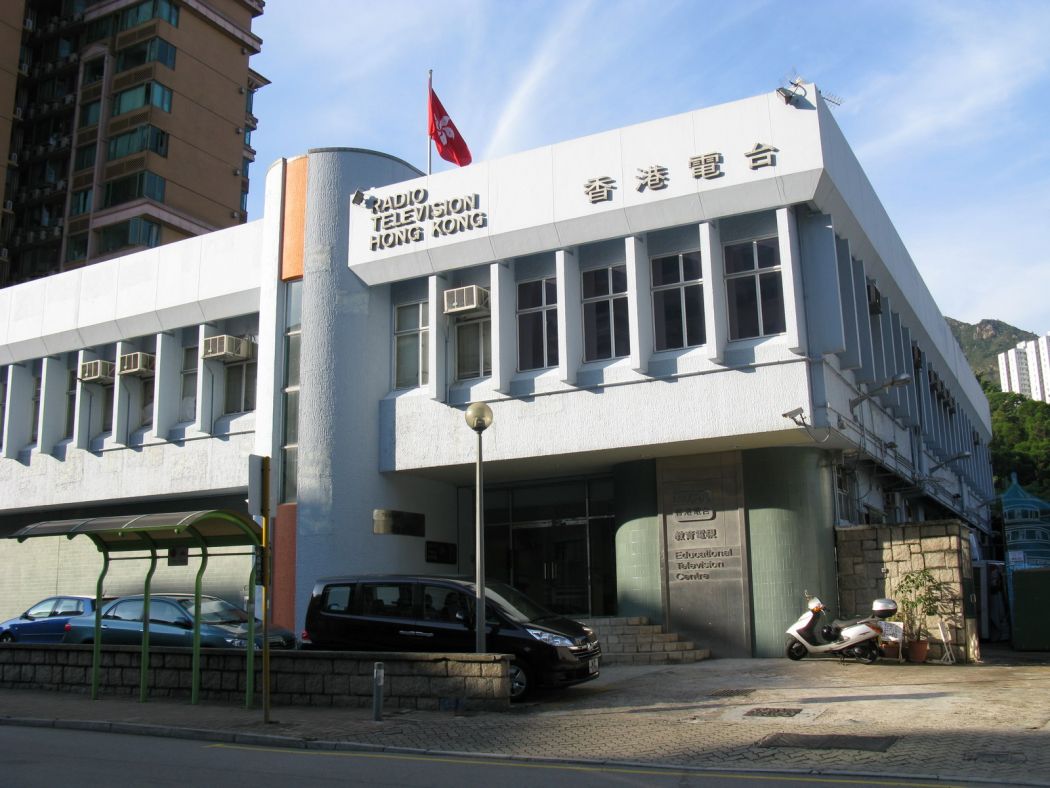By John Patkin
Critics of Radio Television Hong Kong (RTHK) have focussed on content they disagree with, particularly on what they perceive to be an anti-government bias.
As RTHK is government-funded, these critics argue that the broadcaster disrespects its sole financier and should be shut down or privatized.
This argument is flawed because RTHK’s remit stipulates its editorial independence; the real problem is that the broadcaster needs a major funding boost and greater independence from the government.
RTHK is a public service broadcaster (PSB) modelled on the BBC with the aim of informing, educating and entertaining through traditional media such as radio and television and new platforms such as the Internet.
The BBC has dedicated funding through TV licenses that are paid by households, advertising on some of its platforms, the sale of its programmes, and government funding. RTHK is funded solely by the Hong Kong government.
The BBC and RTHK are different from organisations such as CCTV, which is a state broadcaster and aligned with the views of the central government.

Models of PSBs vary but, in general, they receive public funding, try to minimize the reliance on advertising and serve all sectors of society, including minorities, with a balanced view that sometimes tilts towards social justice.
PSBs pride themselves on being able to broadcast without the fear of interference. A for-profit broadcaster, in a business that relies on audience share to sell advertising, may choose not to cover an event due to the lack of commercial interest. A PSB may feel it is important to give minority issues more exposure.
For-profit broadcasters such as Fox TV will not cover an issue if it risks losing its audience and advertisers.
RTHK’s identity crisis stems from the late 1960s when the broadcaster was one of the city’s dominant media platforms used by the government to share views on the disturbances. The government established programmes for its officers to ‘reach out’ to the community and also to hear the views of Hongkongers.
As Hong Kong returned to normal, the government relaxed its control over RTHK and allowed it to develop more independence but within the civil service.

The problems surrounding RTHK’s funding and role are closely linked to its internal staffing structure. Much of RTHK’s management and administration are well paid civil servants working 9-5 Monday to Friday, while most of the people making and producing content are on less favourable terms.
The civil servants hire contract and freelance staff, control purchasing and liaise with other government departments. This arrangement appears to give rise to the belief that RTHK is controlled by ‘pencil pushers.’
As a former freelance presenter on RTHK’s English language service, I witnessed numerous shortcomings in the system. Something as simple as changing a studio light required a manager to contact another government department.
More serious issues such as the failure of live programming equipment out of office hours left untrained freelance employees to make decisions in the absence of a contingency plan. The dated equipment led to some employees referring to RTHK as a broadcasting museum.
Following complaints made by the police about RTHK’s satirical show Headliner, the requirement for free TV licensees to air this show is lifted. This is a solid example of police interfering with freedom of the press #RTHK #FreedomOfPress #FreedomOfSpeech #HongKong #democracy pic.twitter.com/iBJjUh7NxZ
— antielabhk (@antielabhk) March 13, 2020
Having spent several years working at and researching RTHK, these days I spend little time listening to its English radio service and instead use its android app for Hong Kong news. This is also disappointing.
Much of the content is out of date and full of typographical errors, which is inexcusable in an era of machine-assisted newsgathering and editing tools. How much extra effort is required to publish an online version of a story when preparing hourly newscasts?
One of RTHK’s local low budget competitors seems to be able to do this seamlessly.
In recent months, RTHK’s digital TV has broadcast live images of the Hong Kong protests which understandably ate into its budget. Anyone watching channel 32 may have wondered why RTHK was doing this.
Much of the footage lacked context as there was no commentary and little signposting, and due to the nature of the protests, the picture was often shaky. From a balanced content perspective, the viewer may have felt as if they had been embedded with the protesters and as such RTHK seemed to have failed its remit in providing balanced coverage.

In order for RTHK to perform its role as a PSB, it needs to become independent of the civil service. It needs to be given enough money to build a new headquarters with cutting edge technology that is able to attract and retain multimedia talent.
It should develop a business plan that allows it to sell its broadcasting expertise to the government and the private sector and also become a leading training provider in Asia. Using the recent protests as an example, RTHK could have acted as a pool source and sold its feed to other media organisations here and abroad.
It will not be easy for the government to transform RTHK as it inherited a flawed licensing system that has severely limited the number of independent broadcasting outlets in Hong Kong.
Allowing RTHK to follow its remit without the bureaucracy of the civil service may finally see the broadcaster demonstrate the true nature of a PSB, which it has been denied since it first broadcast from a tent in the early 20th century.
John Patkin is a research assistant at the Education University of Hong Kong.
